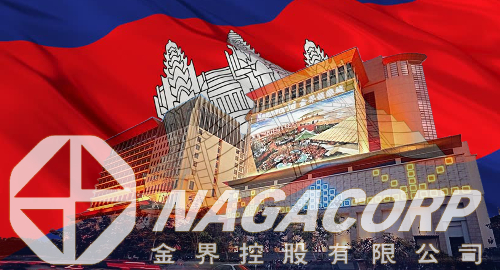
NagaCorp filed papers with the Hong Kong Stock Exchange on Tuesday showing unaudited VIP gambling turnover at its flagship NagaWorld property in Cambodia’s capital Phnom Penh rising 67% year-on-year to just over $11b in the nine months ending September 30, despite the demise in January of a high-profile junket deal with Jimei International.
The mass market figures for the year-to-date were more subdued but nonetheless impressive, with mass table buy-ins up 24% to $566.4m and electronic gaming machine bills-in rising 16% to over $1.3b thanks in part to a double-digit rise in Chinese tourist visitation.
The figures reflect a continuation of the solid performance the company enjoyed over the first six months of the year. In July, NagaCorp reported its H1 2017 revenue rising nearly 40%, while profit improved by more than one-fifth to $150.6m.
NagaCorp’s deal with the Cambodian government requires it to pay a flat monthly fee in lieu of a revenue-based tax, with one rate for gaming operations and another for non-gaming amenities. But that arrangement may be coming to an end as Cambodia prepares its long-awaited revamp of the nation’s gambling laws.
Last month, NagaCorp chairman Tim McNally told GGRAsia that the company’s effective tax rate over the first half of 2017 was around 4.8%. Cambodia’s government has played coy with how the new law will address casino taxation, but local media has suggested a gross gaming revenue tax in the range of 4% to 5% could be in the offing.
NagaCorp is preparing for the opening this month of its TSCLK Complex (more commonly known as ‘Naga2’) addition to its flagship property, which will include a gaming component of up to 300 tables and 500 slots, as well as an additional 1k hotel rooms. The $369m add-on has been subject to numerous delays, in part due to run-ins with local monks over construction that damaged the adjacent National Buddhist Institute.
